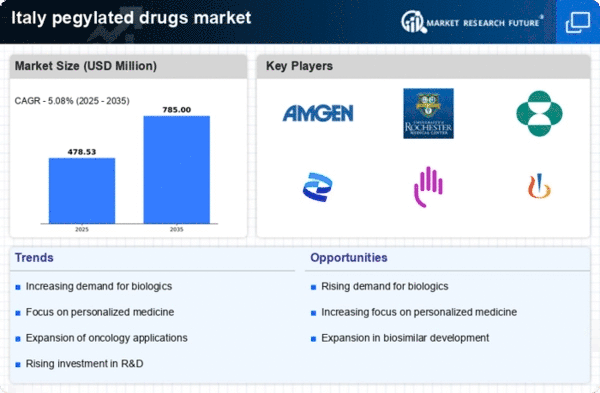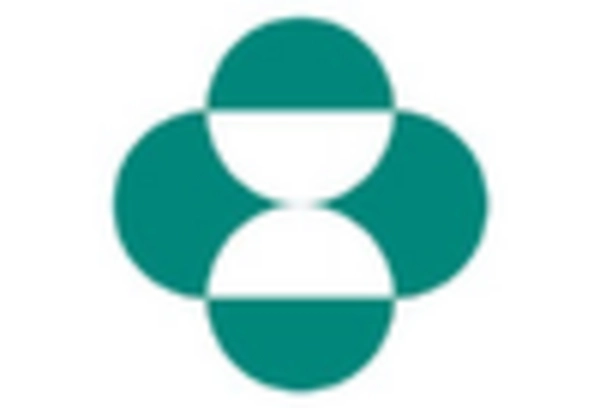Rising Demand for Biologics
The increasing demand for biologics in Italy is a pivotal driver for the pegylated drugs market. Biologics, which are derived from living organisms, have gained traction due to their efficacy in treating complex diseases. In 2025, the Italian biologics market is projected to reach approximately €5 billion, with pegylated drugs playing a crucial role in this growth. The unique properties of pegylated drugs, such as extended half-life and reduced immunogenicity, make them particularly appealing for chronic conditions. As healthcare providers and patients seek more effective treatment options, the pegylated drugs market is likely to benefit from this trend, indicating a robust future for biologics in Italy.
Regulatory Framework Enhancements
The evolving regulatory framework in Italy is facilitating the growth of the pegylated drugs market. Recent reforms aimed at streamlining the approval process for new drugs are encouraging pharmaceutical companies to invest in pegylated formulations. The Italian Medicines Agency (AIFA) has implemented measures to expedite the review of innovative therapies, which is expected to reduce time-to-market for pegylated drugs. This regulatory support is crucial, as it not only enhances the competitiveness of Italian pharmaceutical companies but also ensures that patients have timely access to advanced therapies. As the regulatory landscape continues to evolve, the pegylated drugs market is likely to thrive, reflecting the benefits of a more efficient approval process.
Advancements in Drug Delivery Systems
Innovations in drug delivery systems are significantly influencing the pegylated drugs market in Italy. Enhanced delivery mechanisms, such as nanoparticles and liposomes, are being integrated with pegylated drugs to improve therapeutic outcomes. These advancements allow for targeted delivery, minimizing side effects and maximizing drug efficacy. The Italian pharmaceutical industry is investing heavily in research and development, with an estimated €1 billion allocated to drug delivery innovations in 2025. This investment is expected to bolster the pegylated drugs market, as more effective delivery systems become available, potentially leading to increased patient adherence and improved health outcomes.
Increased Investment in Biotechnology
The surge in investment in biotechnology within Italy is propelling the pegylated drugs market forward. With government initiatives and private sector funding, the biotechnology sector is experiencing rapid growth, with investments reaching €2 billion in 2025. This influx of capital is fostering innovation in drug development, particularly in the area of pegylated drugs, which are known for their enhanced pharmacokinetic properties. As more biotech firms emerge and existing companies expand their research capabilities, the pegylated drugs market is likely to see a corresponding increase in product offerings and advancements, potentially transforming treatment paradigms in various therapeutic areas.
Growing Prevalence of Chronic Diseases
The rising prevalence of chronic diseases in Italy is a significant driver for the pegylated drugs market. Conditions such as diabetes, cancer, and autoimmune disorders are becoming increasingly common, necessitating effective treatment options. According to recent statistics, chronic diseases account for approximately 70% of all healthcare expenditures in Italy. This trend underscores the urgent need for innovative therapies, including pegylated drugs, which offer prolonged therapeutic effects and improved patient compliance. As the healthcare system adapts to manage these chronic conditions, the pegylated drugs market is poised for substantial growth, reflecting the demand for effective long-term treatment solutions.
















